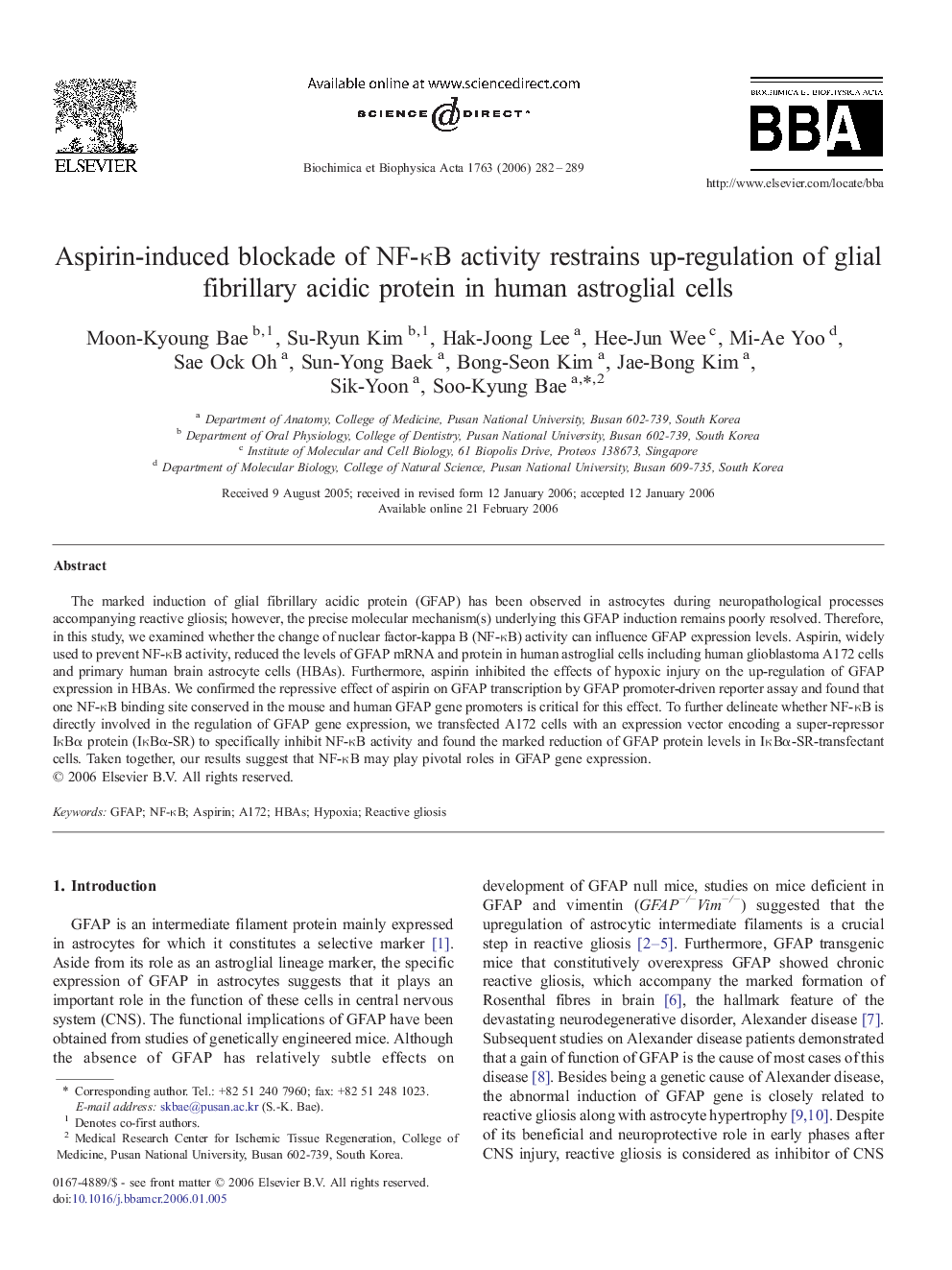| Article ID | Journal | Published Year | Pages | File Type |
|---|---|---|---|---|
| 1951794 | Biochimica et Biophysica Acta (BBA) - Molecular Cell Research | 2006 | 8 Pages |
Abstract
The marked induction of glial fibrillary acidic protein (GFAP) has been observed in astrocytes during neuropathological processes accompanying reactive gliosis; however, the precise molecular mechanism(s) underlying this GFAP induction remains poorly resolved. Therefore, in this study, we examined whether the change of nuclear factor-kappa B (NF-κB) activity can influence GFAP expression levels. Aspirin, widely used to prevent NF-κB activity, reduced the levels of GFAP mRNA and protein in human astroglial cells including human glioblastoma A172 cells and primary human brain astrocyte cells (HBAs). Furthermore, aspirin inhibited the effects of hypoxic injury on the up-regulation of GFAP expression in HBAs. We confirmed the repressive effect of aspirin on GFAP transcription by GFAP promoter-driven reporter assay and found that one NF-κB binding site conserved in the mouse and human GFAP gene promoters is critical for this effect. To further delineate whether NF-κB is directly involved in the regulation of GFAP gene expression, we transfected A172 cells with an expression vector encoding a super-repressor IκBα protein (IκBα-SR) to specifically inhibit NF-κB activity and found the marked reduction of GFAP protein levels in IκBα-SR-transfectant cells. Taken together, our results suggest that NF-κB may play pivotal roles in GFAP gene expression.
Related Topics
Life Sciences
Biochemistry, Genetics and Molecular Biology
Biochemistry
Authors
Moon-Kyoung Bae, Su-Ryun Kim, Hak-Joong Lee, Hee-Jun Wee, Mi-Ae Yoo, Sae Ock Oh, Sun-Yong Baek, Bong-Seon Kim, Jae-Bong Kim, Sik-Yoon Sik-Yoon, Soo-Kyung Bae,
